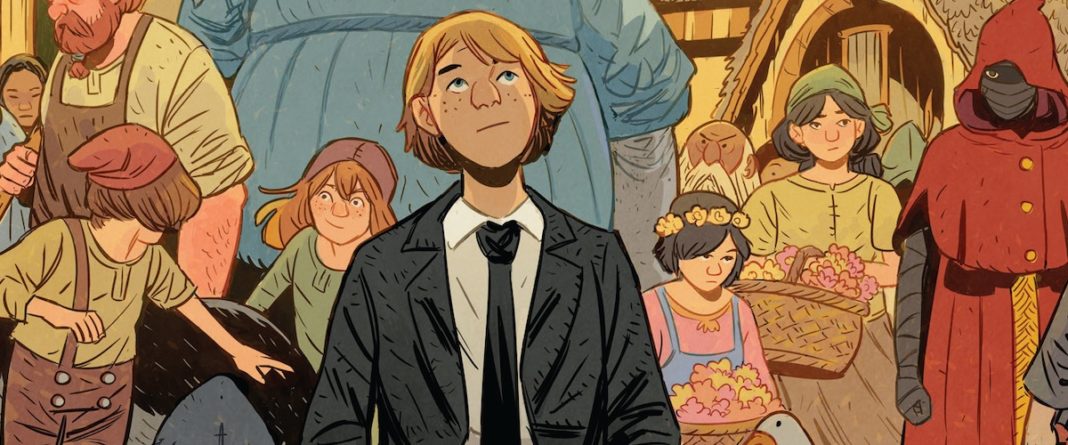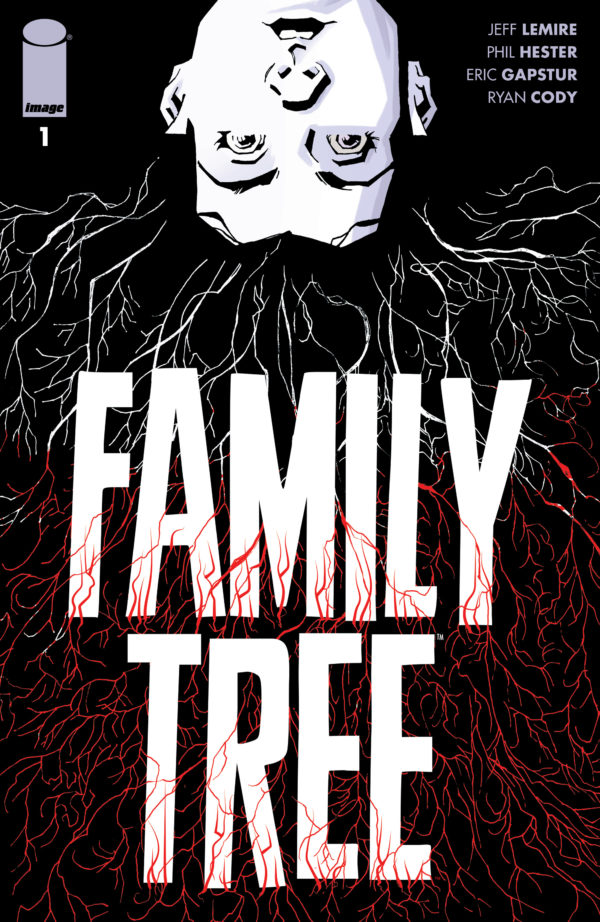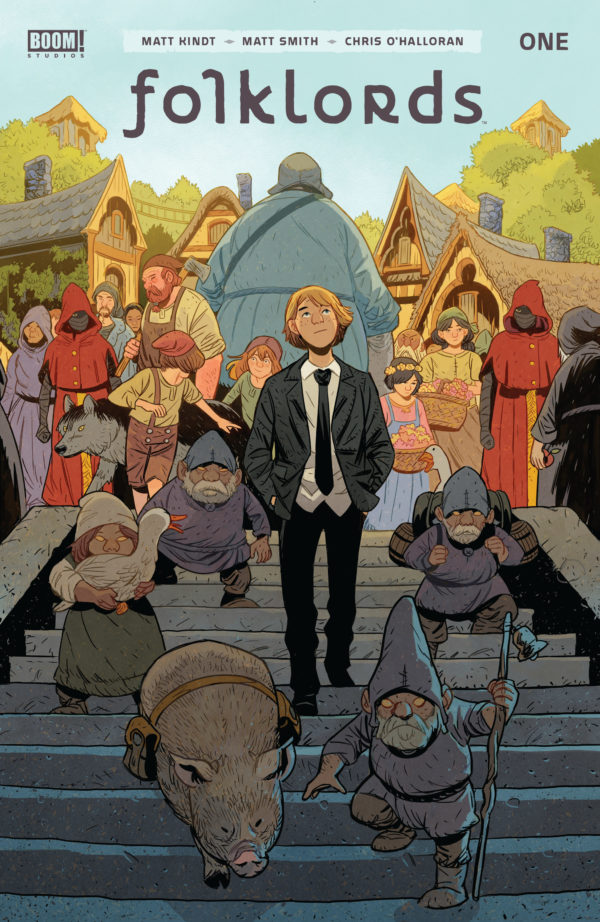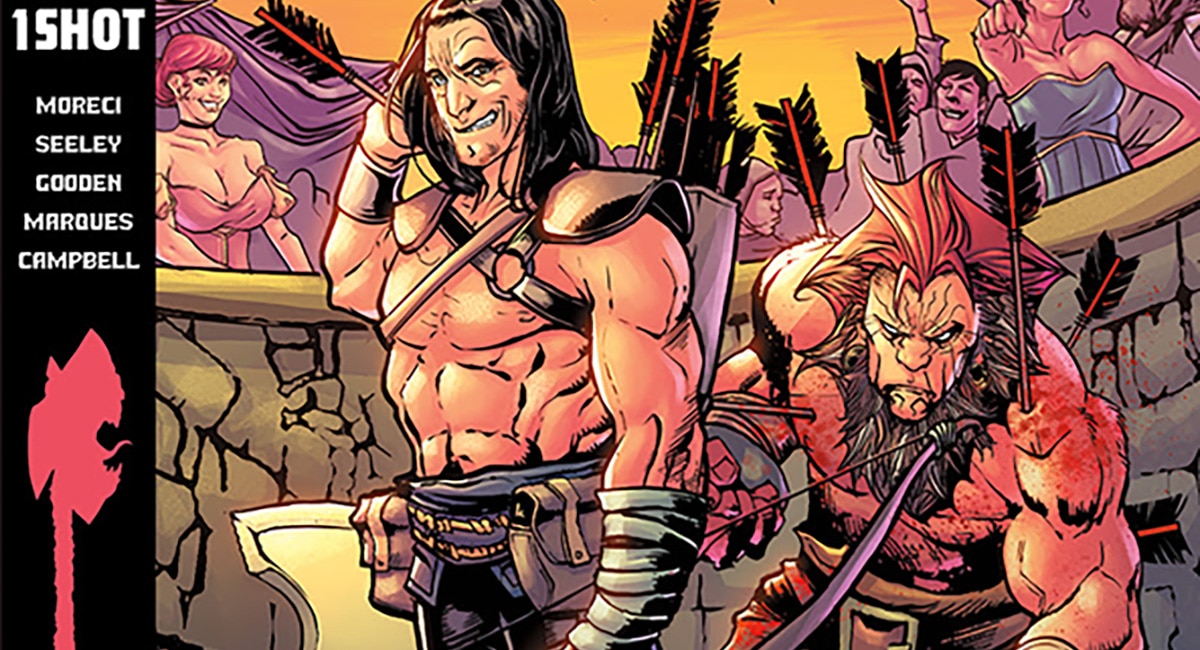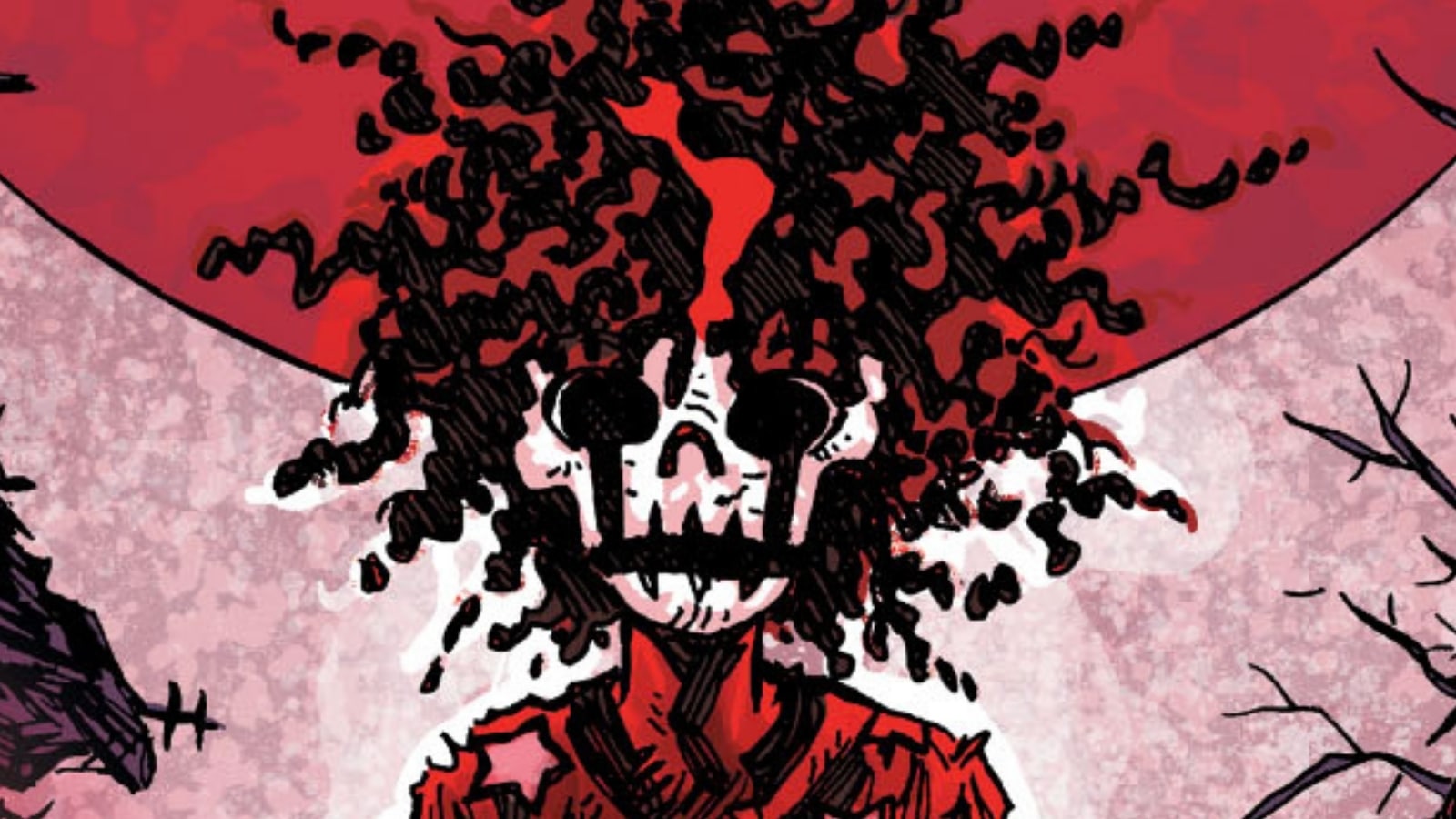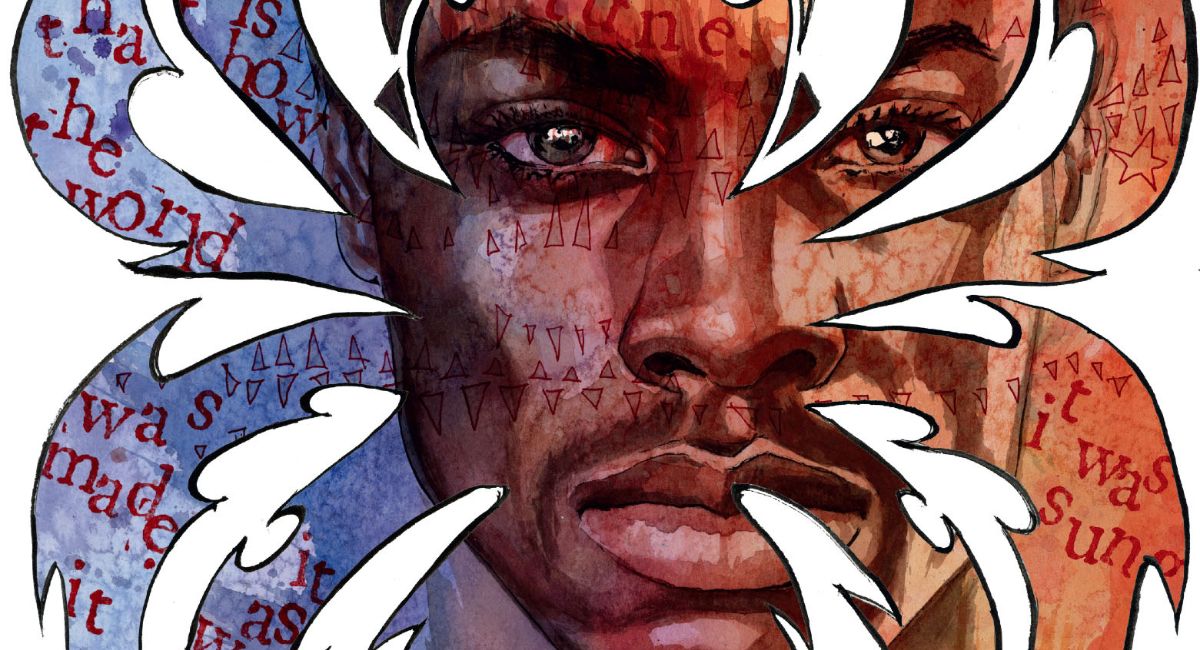Family Tree #1
Written by Jeff Lemire
Illustrated by Phil Hester
Image Comics
I’m past the point where I’m willing to give end of the world stories much of a chance if they involve zombies. There are, quite frankly, too many zombie stories in existence and just when you think their time is over, a bunch more appear. They just keep coming. Which is more relentless and exhausting — zombies or zombie stories?
Surely there is something else you can populate your apocalyptic adventures with. How about trees?
That’s what Jeff Lemire and Phil Hester decided to do with their new comic Family Tree, though from a single issue, I can’t honestly tell you whether the trees are going to lead to a pandemic storyline like something out of the TV show Survivors or a monstrous plant invasion akin to the Triffids. I’m game either way.
Family Tree definitely has its tropes down in the slow, slow, slow then all of a suddenly careening discovery that something bad has been happening under our noses and now we’re just beginning to notice. In this case, it’s single mom Loretta, who’s problems currently are having to work in a tedious grocery store job and bailing her son out of trouble at school. But when her daughter Meg comes down with a strange rash that grows at rapid pace, it heralds in just how the world is about to change.
In different hands, this might be too derivative to read, but Lemire and Hester provide a lot of personality to the story. Loretta narrates from some point in the future, hinting at massive changes in the world and with a weariness that hints at much character development to unfold. In the present-day, Loretta is a personable wreck of an EveryMom who functions as a lively center of adventure to act as our host in the story of the unraveling of our world.
Folklords #1
Written by Matt Kindt
Illustrated by Matt Smith
Colored by Chris O’Halloran
Lettered by Jim Campbell
Boom! Studios
Managing to subvert fantasy tropes at the same time it uses them for a genuinely interesting adventure, Folklords #1 presents rebellion as a conduit for real growth … maybe.
Folklords begins as Ansel prepares for a special day when those coming of age announce a quest they intend to go on before settling into lives as normal villagers. When Ansel tells his group of friends what he intends to do for his quest, they balk at the idea, which is considered too dangerous. Ansel, however, is focused on finding the titular Folklords.
It’s hard to say what exactly the Folklords are, but what we do know is that Ansel is compelled to search for them on his quest because of intense dreams he has instructing him to do so. He’s even gone so far as to create a “questing suit” modeled on what is worn in the Folklord’s world. It’s a men’s suit like anyone would wear in our world, but among Ansel’s people, it looks strange.
It’s hard to see how things are going to fall into place very easily for Ansel since a body of mysterious police figures oversee the quests and pretty much the rest of society. The Librarians are masked gatekeepers who combat transgressions against their tight hold on this fantasy world with threats of execution.
What Kindt seems to be delivering with Folklords is an examination on originality in storytelling and an indictment of those who would steer literature into safe territory. Ansel stands-in for creative young people who would want to explore new narrative ground, while the Librarians feel like oppressive educators and editors who want to make sure everything is safe, perhaps even wholesome.
But no good fantasy adventure ever came from a main character who followed the rules and Ansel looks to be taking readers on an adventure that might be born of defiance but is filled with clever concepts and amusing dialogue that keeps it lively and fun, and might even offer some insight and critique on the genre it embraces.


